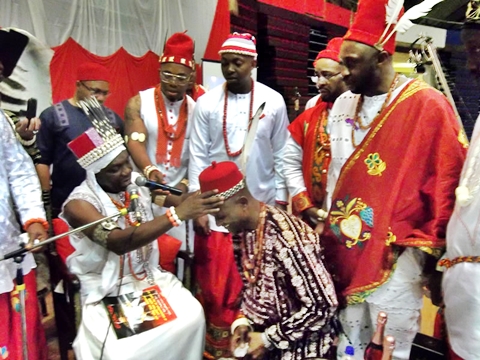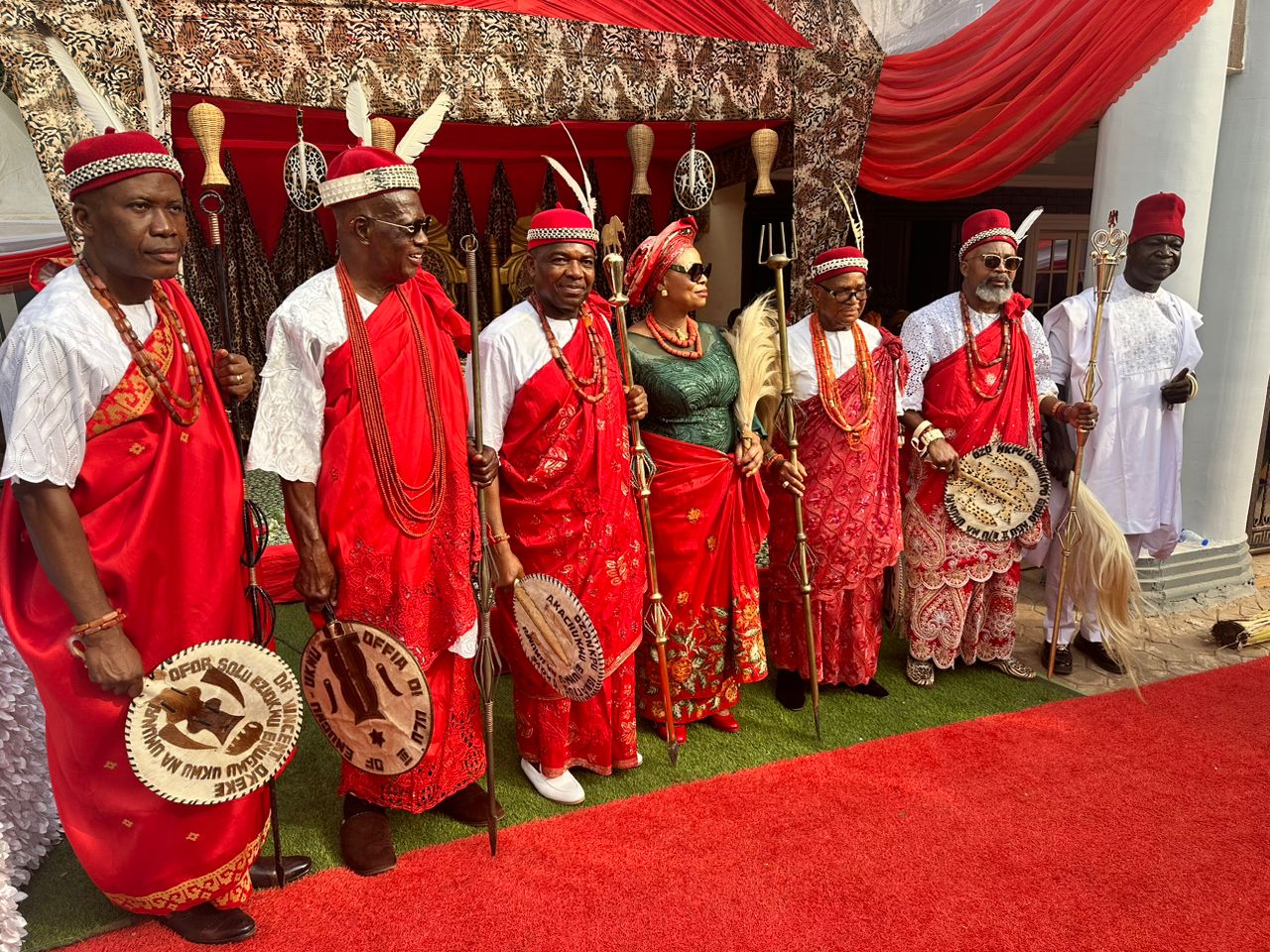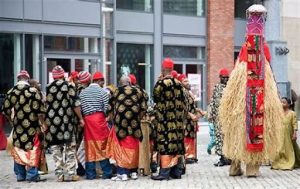Among the most respected and important cultural events in Igboland, southeast Nigeria, is the Ozo title-taking ritual. Within the Igbo society, it stands as the height of social and spiritual position; it gives the titleholder great respect, power, and obligations. The Ozo title is a way of life that ties the person to the religious, ethical, and cultural values of the Igbo people rather than just an honor. The Ozo title-taking custom’s historical background, importance, rites, and modern relevance are investigated in this thorough study.
Historical Background
The Ozo title is firmly anchored in the Igbo people’s conventional social system. It has roots in the need for an acknowledged and accepted leadership structure within the society and spans millennia. Originally, the title was only for persons of great riches, knowledge, and morality who had shown they could guide and make judgments for the benefit of the society.
The Ozo titleholders of pre-colonial Igboland preserved the traditions, laws, and religious practices of the society. Often engaged in administration of justice, dispute settlement, and government, they were the elite class. With Ozo titleholders acting as middlemen between the spiritual and worldly domains, the title also intimately related with the worship of deities and ancestors.

The Significance of the Ozo Title
The Ozo title recognizes spiritual development and moral responsibility rather than just a sign of social rank. Often known as Nze or Ozo, the titleholder is regarded as a model person who preserves Igbo beliefs and customs. She is absolutely pure. The term suggests that the person has been selected to take the stage in the society by the gods and ancestors.
The significance of the Ozo title can be understood through its multifaceted roles:
- Spiritual Leadership
Ozo titleholders are seen as spiritual leaders having a unique connection with the ancestors and gods. At significant events, they conduct prayers, carry out rites, and offer sacrifices. Their spiritual might enables them to bless, guard, and direct the society.
- Social Authority
Ozo titleholders are honored in Igbo culture as leaders and decision-makers for their community. They oversee social standards, dispute resolution, and justice administration as well as conflict. Their advice is sought in very important issues; the society values and follows their choices.
- Cultural Custodianship
The protectors of Igbo customs, culture, and language are the Ozo titleholders. They are very important in maintaining and spreading cultural knowledge as they guarantee that the next generation follows the cultural values of the society. They also supervise customs of passing, celebrations, and cultural events.
- Moral Exemplar
An Ozo titleholder is supposed to be a person of great moral standards, a role model for the rest in the society. In all their interactions, they are supposed to show humility, honesty, integrity, and justice. The behavior of the titleholder is under great observation; any departure from anticipated behavior may result in penalties or loss of the title.
The Ozo Title-taking Ceremony
The Ozo title is taken in a complex, holy ceremony full of symbolic rites. This path calls for time, money, and dedication as well as a lot of travel. Though the rituals varied somewhat across Igbo groups, the fundamental components are always the same.
- Eligibility and Preparation
Not everyone could hope to be an Ozo titleholder. The applicant has to be a guy of excellent reputation, riches, and social level within the society. In certain societies, the applicant also has to have finished specific customary ceremonies and be free of any taboos or curses. Given the title is usually inherited, the candidate’s family history and ancestry are also closely examined.
Extensive conversations with diviners, titleholders, and seniors form part of preparation for the event. The ritual entails several costs, such the purchase of ceremonial artifacts, payment of fees, and hosting of extravagant feasts, hence the candidate also must make significant financial preparations.
- Ritual Purification
The applicant goes through a sequence of purifying rites before the ceremony to rid him of any unwanted effects or contaminants. Usually including prayers, libations, and sacrifices, these rites call for The aspirant could also be obliged to spend some time alone, during which he is taught the Ozo title’s mysteries and obligations.
- The Ime Ozz Ceremony
Attended by the whole community, the major Ozo title-taking ceremony is called Ime Ozo. Usually occurring in the town square or a holy forest, the ritual presents the candidate before the gods, ancestors, and the society.
The ritual starts with the prayer of the gods and ancestors then the candidate is presented. The applicant then suits traditional garb, complete with a white robe, crimson hat, and other significant objects. Particularly important is the crimson headgear known as Okpu Ozo as it marks the candidate’s new Ozo titleholder status.
After that, the applicant receives a holy Ozo stick called Ofo, which stands for his power and relationship to the spiritual domain. The titleholder uses the Ofo staff—which is said to be endowed with the power of the ancestors—to deliver announcements, bless the town, and fend against evil.
The candidate swears loyalty to the gods, ancestors, and society during the last part of the ritual. This oath ties the titleholder to respect Ozo institution principles and customs as well as to serve the community honorably and modestly.
- Feasting and Celebration
The new Ozo titleholder throws a great feast for the community after the official ceremony. Family, friends, and well-wishers assemble for the feast—a celebration—to congratulate the titleholder and provide presents. The festival consists on traditional music, dancing, and performances showing the happiness and pride of the society.
- Post-Ceremony Responsibilities
An Ozo titleholder has obligations outside of the ceremony. The titleholder is supposed to oversee community gatherings, take part in the council of elders, and oversee religious and cultural events. As an example for others, the titleholder also has to maintain the moral and ethical standards of the Ozo institution.

Contemporary Relevance of the Ozo Title
Though it has changed to fit shifting social and cultural dynamics, the Ozo title remains very important in Igboland in present times. Although the title’s spiritual and cultural elements remain the same, in modern culture the Ozo title has also come to represent social status and success.
The Ozo title now is sought for by educated, urban-dwelling Igbo men who want to connect with their cultural heritage, not only by traditional rural groups. With many well-known politicians, businesspeople, and professionals using the Ozo title to improve their social status, the title has evolved as a signal of achievement and respectability.
But the Ozo title’s commercialization has sparked questions about its declining traditional virtues. Sometimes people with dubious motivations or character have adopted the title in order to further their own interests instead of out of a sincere dedication to benefit the society. This has resulted in demands for tougher rules and the preservation of the Ozo institution’s spiritual and ethical integrity.
Conclusion
A great and long-standing tradition in Igbo society, the Ozo title-taking event marks the pinnacle of social and spiritual accomplishment. Confering both respect and duty, this custom bonds the titleholder to the community, the ancestors, and the gods. The Ozo title is nevertheless a potent emblem of Igbo identity, values, and legacy despite the difficulties of modernity and commercialization.
The Ozo title will probably change along with Igbo culture, keeping its basic values while accepting fresh manifestations of ethnic pride and leadership. Whether in metropolitan areas or traditional villages, the Ozo title is evidence of the rich cultural past of the Igbo people and their relentless dedication to preserve their customs and beliefs.




